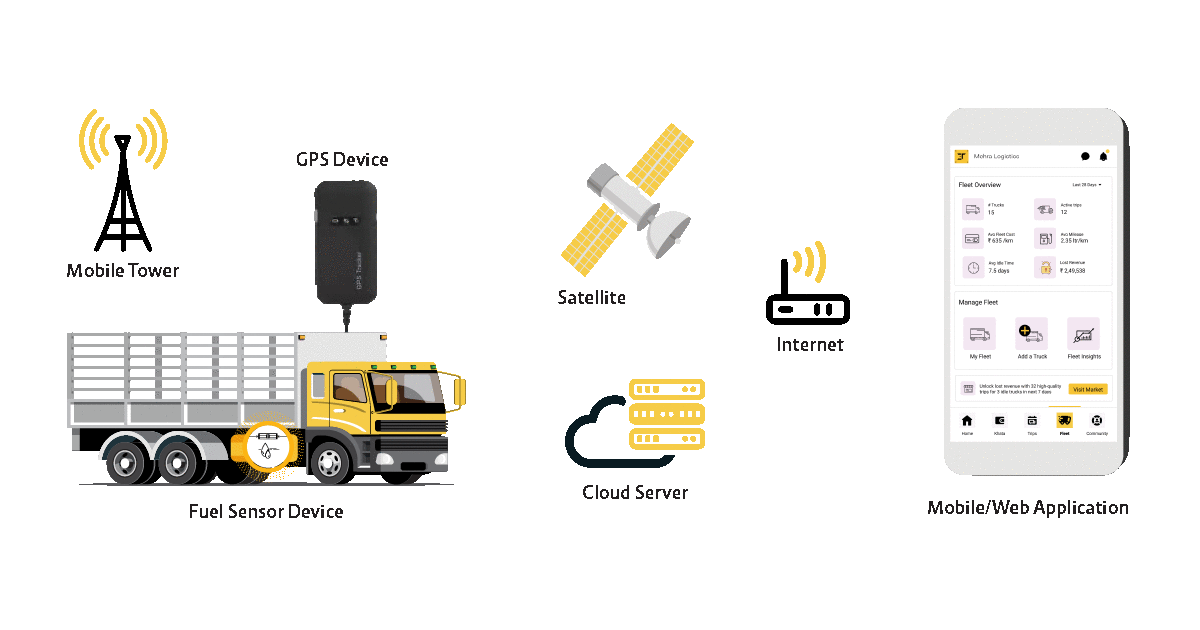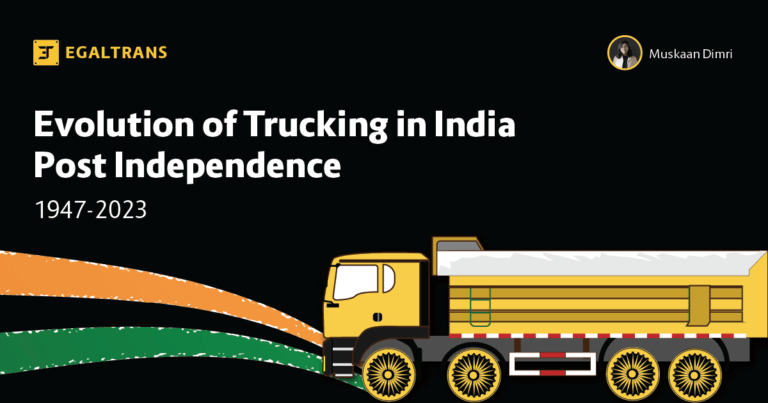The trucking industry is a cornerstone of global commerce, moving goods across continents with impressive efficiency. In recent years, technology has provided tools that make the job of fleet managers easier, and one of these advancements is remote fuel monitoring. By allowing managers to oversee fuel consumption in real-time, this technology promises reduced costs and increased efficiency. However, like any evolving technology, it comes with its own set of challenges.
What is Remote Fuel Monitoring and How does it Work?
Remote fuel monitoring uses the new technologies of GPS based monitoring and applies it on the vehicles. The remote fuel monitoring solution can improve fuel consumption management and control abnormal fuel consumption of vehicles. It has been introduced in the trucking industry due to the potential benefits it offers, such as cost savings, improved efficiency, and theft prevention.

Complexities and Challenges of Monitoring Fuel Remotely along with Solutions
1. Infrastructure and Setup Costs
Investing in new technology always comes with an initial cost. Setting up sensors, data relay systems, and software for remote fuel monitoring requires significant capital. For smaller trucking businesses, the upfront expenses can be daunting and may not offer immediate returns on investment. In order to buy a monitoring software, pros and cons should be weighed before any decision. The setup costs should be well bargained with the vendors keeping in mind the quality of the setting up.
2. Connectivity Issues
Monitoring fuel level remotely relies on a stable internet connection to transmit data from the truck to the central system. In areas with patchy connectivity or while crossing international borders, there might be delays or loss of data. This could result in incomplete or inaccurate fuel usage records.
3. Calibration Challenges
Accuracy is crucial in remote fuel monitoring. Sensors need regular calibration to ensure they’re providing correct readings. Without regular checks, the system might deliver misleading information, leading to incorrect decision-making.
4. Data Security and Privacy Concerns
With the digitization of any process comes the risk of data breaches. Trucking companies need to invest in robust cybersecurity measures to protect sensitive data from hackers. Additionally, drivers might have concerns about being constantly monitored, which could lead to privacy issues or even resistance to using the technology. We had previously talked about using fuel consumption monitoring for improved driver loyalty.
5. Dependence on Vendor Support
Most remote fuel monitoring systems are proprietary, meaning trucking companies rely heavily on vendor support for updates, maintenance, and troubleshooting. If a vendor goes out of business or discontinues support, it could render the entire system obsolete.
6. Integration with Existing Systems
For companies that already have some form of fleet management or tracking system in place, integrating new technology can be a hassle. It’s essential that remote fuel monitoring systems can seamlessly communicate with existing platforms, avoiding the need for double entries or reconciliations. The monitoring system should be well equipped with softwares that supports updates according to the conditions.
7. Training and Adaptability
Every new technology demands some level of training. Fleet managers, drivers, and administrative staff all need to understand and adapt to the new system. This could lead to resistance, especially if the benefits aren’t immediately apparent or if the system is not user-friendly.
8. Environmental Factors
External conditions such as extreme temperatures and pressure on engines can impact the performance of sensors and equipment used in remote fuel monitoring. It’s crucial for the hardware to be durable and able to withstand the varied conditions trucks might encounter on their routes. The fleet manager should be well known with the technicalities of the system.
Remote fuel monitoring offers undeniable advantages for the trucking industry, such as reducing fuel theft, optimizing routes, and improving overall fleet efficiency. However, as with any technological innovation, it comes with its own set of challenges that need to be navigated with care.
It’s vital for trucking companies to weigh the pros and cons, conduct thorough research, and possibly even pilot the technology on a small scale before fully integrating it into their operations. With the right approach and by addressing these challenges head-on, remote fuel monitoring can prove to-be a game-changer for the industry.







Indeed !! ❤️